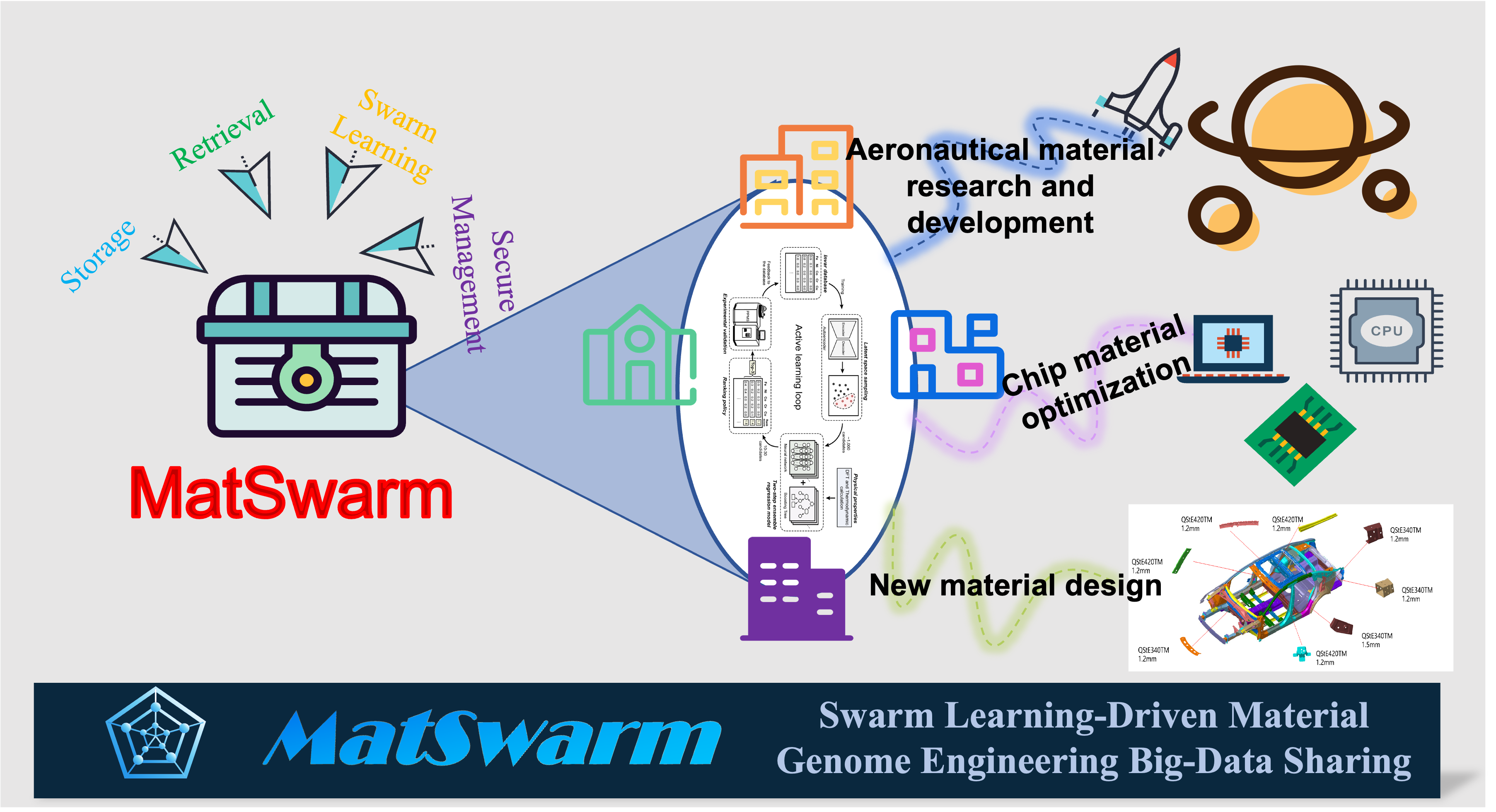Projects
This page is still under construction !
MatSwarm
 The rapid evolution of Industry 4.0 demands seamless collaboration among material research institutions to speed up advanced material discovery. The current platforms struggle with integrating large-scale, heterogeneous datasets, leading to data silos that hinder collaboration and innovation. The University of Science and Technology Beijing addresses these challenges through the National Material Data Management and Services (NMDMS) platform, which aggregates over 14 million material data entries from 30+ institutions, supporting high-throughput experimentation and collaborative research in materials genomic engineering. Key to this platform’s success is its advanced data normalization, distributed storage, and blockchain-based middleware, which ensures secure, cross-institutional data sharing. The MatSwarm framework further enhances this environment by introducing swarm transfer learning to boost model accuracy and generalization on non-i.i.d. data. NMDMS stands as a pioneering tool in materials research, driving innovation and fostering secure, efficient, and collaborative materials computation across institutions.
The rapid evolution of Industry 4.0 demands seamless collaboration among material research institutions to speed up advanced material discovery. The current platforms struggle with integrating large-scale, heterogeneous datasets, leading to data silos that hinder collaboration and innovation. The University of Science and Technology Beijing addresses these challenges through the National Material Data Management and Services (NMDMS) platform, which aggregates over 14 million material data entries from 30+ institutions, supporting high-throughput experimentation and collaborative research in materials genomic engineering. Key to this platform’s success is its advanced data normalization, distributed storage, and blockchain-based middleware, which ensures secure, cross-institutional data sharing. The MatSwarm framework further enhances this environment by introducing swarm transfer learning to boost model accuracy and generalization on non-i.i.d. data. NMDMS stands as a pioneering tool in materials research, driving innovation and fostering secure, efficient, and collaborative materials computation across institutions.
